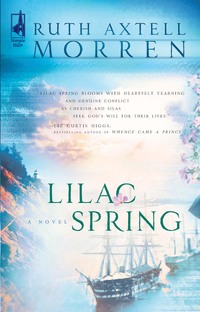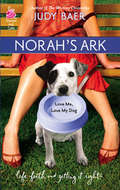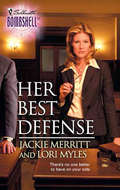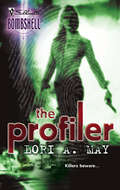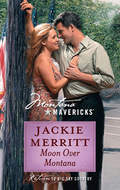Kitap dosya olarak indirilemez ancak uygulamamız üzerinden veya online olarak web sitemizden okunabilir.
Kitabı oku: «Lilac Spring», sayfa 2
Chapter Two
The next morning Cherish entered her father’s office and breathed a sigh of relief to see him alone.
“Good morning, Papa. I’m sorry I missed you at breakfast. I was lazy this morning.”
“Hello, Cherish! As well you should be, only your second full day back. What are you doing down here? Your aunt want something?”
“No, nothing. Only to have me stay inside cooking and cleaning, but I escaped her.”
He chuckled. “Well, I suppose it’s not a bad idea to have her teach you a few things. I know she’s been after you, and I’ve been pretty indulgent with you since your mother passed away.”
Cherish patted his hand. Although it had been four years since her dear mama had succumbed to influenza, they both still felt the void she’d left behind. Even though his sister had taken over the housekeeping, things had never been the same.
Her father sighed. “Well, no matter. I want you to enjoy your summer. There’s plenty of time to think of other things.”
Cherish brought a chair over, to sit across the table from her father. Relieved, she looked at the plan he had been reviewing. “A new boat?”
“Yes, a forty-five-foot pinky.” He tapped the end of his pencil against the paper. “Charles Whitcomb’s commissioned it. He’ll use it up and down the coast for the herring trade and cod fishing. It’s not much of a boat, but I’m glad to have the job.” He sighed. “Business has slowed a bit lately. It’s not like the old days.”
Cherish studied the three profiles of the hull: side view, plan view and forward-and-aft view. “When will you lay the keel?”
“In a few weeks. I need to order the wood and draw up the loft mold.” He sat back, a smile creasing his face. At fifty-two, her father was still a good-looking man. His dark brown hair was thick, interspersed with only a few strands of gray. “I thought I’d go see what Townsend has in his lumberyard. You met his son yesterday. What did you think of him?”
“Nice enough, I suppose.”
“You don’t sound too enthusiastic.”
Cherish interlaced her fingers and extended her arms in front of her. “To be honest, he seemed a duplicate of most of the young gentlemen I’ve met since I’ve been away.”
“What do you find so wrong with today’s young gentlemen?” her father asked in amusement.
She made a face. “They’re so bland, like milksops.”
“Oh, come,” her father chided. “I wouldn’t call young Townsend a milksop. He seems a fine, strapping gentleman with a good head on his shoulders, and a good future, I might add. I’d be proud to have someone like him for a son-in-law.”
“Oh, Papa, I’m only nineteen and just returned home. Are you marrying me off already?”
“Of course not. You’re right. You have plenty of time for courting.” He looked down at the lines drawing and made a notation on the table of offsets. Then his dark eyes pierced hers. “Your mother was your age when she married me. I suppose people married younger back then.
“Girls are too modern nowadays. Wearing bloomers, wanting the same higher education as men…”
“As we should be entitled to,” she countered.
“Oh, well, I’m not going to debate that with you this morning. It’s too fine a day and I’m too happy to have you back home again.” He coughed. “I just want you to promise me you’ll give young Townsend a second look. You’ve hardly known the man long enough to form an opinion.”
“That’s true,” she conceded. “I promise to withhold judgment on ‘young Warren Townsend the Third’ until further acquaintance.”
Ignoring her teasing tone, he said, “Good girl. I can’t ask for more than that. Now, why don’t you sail over with me to Hatsfield tomorrow? You can meet the Townsends again. Their daughter was about your age, wasn’t she?”
Cherish stopped herself from making a face as she thought of the insipid girl who could hardly get two words out without blushing and stammering. “Yes.”
“They’re a very nice family. They bought out McKinley’s Sawmill. They own a lot of timberland up-country. Townsend has plans for a few schooners to ship the lumber to Boston and farther on down the coast.”
Cherish’s interest perked up. “Maybe he’d contract us to build the schooners…although there are shipyards he could go to in Hatsfield.”
“Precisely.” Her father looked pleased at her acumen. “So far, I’ve managed only a nodding acquaintance with him. That should change now you’re here.”
“How so?”
“Well, Townsend’s offspring are about your age. Perhaps you could cultivate the friendship by planning a few parties and outings, now it’s summer weather, and invite them along.”
“Certainly, Papa, if you think it would help.” Cherish clasped her hands before her on the table. “Papa?”
“Yes, my dear?” He eyed her fondly.
“I’d like to help you out here in the shop.”
“Why, you’ve just helped. If you play hostess for me, you can’t imagine the benefits that could result.”
“I’d enjoy that. But Papa, what I mean by helping is that I want to work here, as I’ve done in the past, but now that I’m finished with school, I want you to consider me a permanent helper—the way you did with Cousin Henry.”
Her father’s face soured. “Don’t talk to me about that ungrateful boy! After all the training I gave him, to up and leave me. Thinks he’s found greener pastures down in Boston. He’ll find out soon enough,” warned Winslow.
“You can’t blame him for wanting to work in a large shipyard where they’re building steamships. He sees the future there, and perhaps he’s right.”
“Those tramp steamers can’t compete over long distances with our three-masted schooners. They’ve got to fill half their hulls with coal. Think of the expense. And when their coal runs out, they’re dead in the water.”
“Yes, I know, Papa. I think there’ll always be a place for the sailing ship, but you can’t fault Henry for his ambition.”
Her father stared gloomily past her. “I groomed him to take over the shipyard, and now where am I? Certainly not getting any younger. He was the only family member left, the only one showing any promise for the business.”
“You have Silas.”
“What’s that?” He turned startled eyes toward her.
“I said, you have Silas. He can do anything Henry did. You know he can go beyond Henry. He can be more than a shipwright. You know he could design his own vessels given half the chance. He probably has half a dozen designs in his head.”
“Whoa, Cherish, you slow down. Silas works down in the yard. He’s a fine worker with a good understanding of ship’s carpentry, but don’t expect me to hand this shipyard over to him.” He turned back to his drawing.
Stifling her desire to argue further, she said instead, “Anyway, we were talking about me—about my working here.”
Her father sat back and folded his hands on the desk. “As to you, my dear, I know you’ve always had a hankering for boats and hanging around the shipyard, and I’ve indulged you in a good many ways, but you’re no longer a little girl. You’re a young lady. I’ve given you the best education money can buy just so you could go out in polite society and hold your head high, knowing you’re as good as—better than—most ladies around here.”
“I appreciate all you’ve given me, but Papa, what I really want is to work with you.”
“Don’t be silly. A shipyard is no place for a lady.”
Cherish felt her temper rise, and she prayed for composure. “In that case, I relinquish my claims to the title ‘lady.’”
“It’s a little late for that,” he said dryly. “Do you honestly think I’ve invested all the time and money in your education and travels just to have you working in a boat shop?”
No doubt seeing the outrage in her eyes, he chuckled and patted her hand. “You’re too young to know what you want. I suggest you run along home and do what your aunt bids. You still have your watercoloring, don’t you? Why don’t you walk down to the harbor and paint some of the ships? Then tomorrow we’ll sail over to Hatsfield and you can do some shopping, visit some acquaintances and get to know the Townsends better. We’ll make a full day of it.”
“Papa,” she said quietly, swallowing her frustration with an effort, knowing it would do no good to vent it before her father, “what are you going to do about replacing Henry?”
Her father ran a hand through his hair in a gesture of impatience. “I haven’t figured that out yet. At this point, I don’t need any extra hands.”
“Then let me help you out a while, until you do decide!” She stood and came around the table to her father and put her arms around his shoulders. “Please, Papa! I’ve learned much about draftsmanship over the years. It’s true I haven’t been here full-time as Henry was, or—or—Silas, but I made Henry teach me everything you taught him. I can help with the lofting. I can keep the books. They didn’t only teach us to be ladies at school. I learned solid geometry. I learned enough arithmetic to keep track of your bills and expenses.
“Oh, Papa, please, please, say yes!” Annoyed with herself even as she gave him her most persuasive smile, and wondering why, with all her new maturity, she still had to resort to little-girl tactics, she held her breath, awaiting his reply.
“Oh, I suppose it wouldn’t do any harm for you to putter around a bit here in the office.” He gave her a stern look. “But only up here. I don’t want you down on the yard. And get these silly notions of Silas out of your head. I know whom to put in charge of what in my shipyard. I know my men better than anyone else.
“Now, you spend some time with Phoebe, doing as she tells you, paint me some nice sailing pictures and play hostess for me the way I asked.”
He turned to the shelf behind him. “If you do all I tell you, you can have this.” He handed her a wooden half-hull model of a boat, about a foot and a half in length.
She took the smooth wooden boat, which was attached to a plank of wood. Above it was labeled in neat print “13’ Whitehall.”
“It’s a model for Ernest Mitchell. Let’s see how much you do know. You loft it, and I’ll judge what you’re capable of.”
Her eyes widened in delight. She’d gotten what she’d come for! “Really, Papa?”
He smiled at his daughter’s delight. “Get along with you. Go make yourself useful somehow so I can get back to my work.”
Deciding she’d better table her arguments in Silas’s favor for the present, she gave her father a quick hug, “Oh, yes, Papa! I’ll be the best hostess! I’ll become the best cook and housekeeper Haven’s End has ever seen! Thank you, Papa!”
She bent and gave him a kiss on his whiskered cheek, then fairly flew out of the office, headed for the workshop.
She was halfway out the office door, her mind spinning with ideas, when her father’s voice stopped her. “Remember, we’ll go to Hatsfield tomorrow. I want you to be especially nice to young Townsend and his sister.”
“Of course, Papa. I’ll put on my best company manners and play the lady to the hilt.”
Silas came into the boat shop after working the morning down in the yard, hewing timbers with an ax for the frames and planks for the schooner keel that sat on the stocks down on the beach. Although the spring day was still fresh, he felt hot and thirsty from his labors.
He stopped short at the sight of Cherish at the worktable.
He glanced down at his sweat- and tar-stained work shirt. “Hello, Cherish. What are you doing here?” He felt suddenly awkward before her dainty femininity. He wasn’t used to the new, grown-up Cherish. At least she looked more like her old self in a cotton frock and apron, her hair tied back with a bow.
She gave him a frown. “Not you, too! Didn’t you think I’d be here?”
He wiped his shirtsleeve against his forehead as he approached her. “Not quite so soon. You’ve only just arrived home.” He raised a brow skeptically. “Did you miss this place so much?”
Her eyes chided him. “This place and its people.”
He could feel himself flushing under her intent slate-blue gaze. For a second it seemed she was referring to him alone. Shaking aside the foolish notion, he observed, “At least I have less trouble recognizing you today.”
She glanced down at herself. “Yes, my gowns are all put away for the moment, though I suppose I’ll be diverting you tomorrow with a latest Parisian creation.”
“Don’t tell me—another party?”
She shook her head, but didn’t say anything more. Her tone turned brisk. “Papa has given me this half-hull for a thirteen-foot Whitehall. He doesn’t think I’ll be able to loft it.” She grinned, suddenly transformed into the little girl he remembered, always out to prove she was as capable as the men around her.
He neared the table and reached for the model. As he did so, an elusive fragrance reached his nostrils. It reminded him of dew-sprinkled lilacs in June. He didn’t remember ever smelling perfume on Cherish before.
He cleared his throat and turned his mind back to the boat in front of him.
“Well, you certainly tagged after Henry enough to know everything he knew. But it’s been two years since you’ve stepped into a boat shop. Aren’t you afraid you’ve forgotten a few things?”
She touched the model with a fingertip. “I think it’s one of those things that isn’t easily forgotten. Just looking at this hull brings back all sorts of recollections.”
She gave him a sidelong glance, mischief lighting the blue depths of her eyes. “Anyway, we are going to loft this together.”
“We?” He quirked an eyebrow up. “Since when am I a draftsman?”
“Since Henry left…and Papa has no immediate plans to replace him.”
Silas was surprised. “He doesn’t?”
She shook her head, sending the little dangling earrings with their minute turquoise stones shaking. Then she frowned. “He says at present he doesn’t need anyone else. He told me it has been slow around here. Has it?”
Silas looked out the square-paned window that overlooked the shipyard below. The tide was out, leaving smooth mudflats visible, with rivulets of water running between them in crooked lines down toward the sea.
“Yes, I suppose it has, this past year especially. We used to average three good-sized vessels a year, up to seven-hundred-ton ships, in addition to the smaller craft.” He nodded down at the stocks. “That’s a fifty-ton schooner—small for us—and it’s the only sizable order this spring. Everything else is like this.” He motioned toward the model on the table.
“Do you think things will pick up?” she asked.
“Hard to say. There’s still a lot of building going on farther down the coast.”
“Do you think Henry was right to head south?”
He shrugged. “Some say the days of sail are numbered. The opening of the Suez Canal in ’69 spelled the beginning of the end for the clipper trade.”
“But what about us here down east? Apart from the passenger steamer service from Boston and Portland, we don’t see much use for steam. All the fishermen sail, even out to the Grand Banks.”
“Yes, I think there’s still a demand for the smaller fishing schooners and those used in the coastal trade. But eventually I see even those supplementing their vessels with steam.” He shrugged. “And more and more of the larger schooners are being built with steel hulls. I don’t know if they’ll prove more successful than wood, but the fact is, shipping companies look at cost. The steel hull will probably last longer than the wood. Most of the larger ships’ hulls are now steel reinforced.”
Cherish turned back to the model. “Oh, well, let’s hope these changes don’t come too quickly. Right now we have a loft to lay out and a mold to build.”
He looked down at her indulgently, encouraged as always by her optimism. “There’s that word ‘we’ again. Do you propose to help me build the mold?”
“If you’re agreeable.”
He didn’t say anything, not wanting to dash her hopes. He realized as he watched her that it was good to have her back—even an adult version of the girl who’d seek him out every chance she got and “discuss” things with him, from every aspect of boats to the latest storybook character she had read about.
“Your father has agreed to this?” he asked finally, his arms folded in front of him.
“Don’t worry about Papa. I’ll take care of him.”
“You’ve been taking care of him quite some years now. I wonder if he’ll ever discover it.”
“Papa doesn’t know the talent he has right under his roof. So it looks as if, now that I’m back, I shall have to show him.” When he didn’t reply, she continued. “You ought to be Papa’s successor. If he can’t see that, well, he will, if I have anything to say about it.”
He turned away his gaze, not reminding her of his own dream—she probably didn’t even remember it. “I still have to be down on the yard,” he reminded her instead.
“So spend your mornings there.” She stood and went to the window. “There are more than enough men down there. You said yourself things were slow. There’s no reason you can’t spend your afternoons up here.” She turned to him, making a face. “I have agreed to spend my mornings with Aunt Phoebe, learning to run a house. But after that, I’m free. Papa said I could help out here.”
“You have it all worked out.”
She gave him a secret smile. “Papa will be convinced, you’ll see. He’ll realize your talent, and he’ll see I have a head for business. He’s already taking me with him to Hatsfield tomorrow to visit the Townsends’ operation.”
So that’s what she’d meant about her fashionable attire.
“Apropos, do you know anything of the Townsends? They were at the party yesterday.”
“Not much. Townsend’s a lumber baron. They’re important in Hatsfield—that’s about all I know.”
“I shall charm them with my European polish, and they will order a fleet of coastal schooners from our yard.”
He frowned at the sudden picture of Cherish laughing and batting her thick, dark lashes at the tall, handsome, impeccably groomed Warren Townsend.
The next morning Cherish took extra care with her toilette, wearing a deep rose gown with white ruffle collar and cuffs. She stuck in a pair of coral earrings and pulled her hair back in a thick coil, knowing the sail would play havoc with anything fancier. She pinned on a pert straw hat with ribbons that matched the gown and pulled back the short net veil. Then, she clipped on a matching pair of gold bracelets she’d purchased in Florence.
She and her father rode in their buggy along the road down to the harbor. From the top of a slope they could see the village of Haven’s End set snug against a hilly curve of land. White houses nestled along its edges and up the surrounding hills. Three long wharves jutted out from the land into the protected harbor, which was filled with moored boats. Beyond, at its mouth, lay a wooded island.
Her father dropped her off at the harbor and went to stable the horse and buggy. Silas was waiting on the wharf, dressed in a creamy, cabled sweater and pea jacket. Although the May day promised to warm up, Cherish knew it would be cold on the water. She had brought along a duffel coat, which she carried on one arm.
“Good morning,” she greeted him.
“Good morning,” he replied, his gray eyes taking in her appearance. “You’re looking smart.”
If the compliment wasn’t all she’d hoped for, at least it was a compliment. Her efforts had been worth it. “Thank you,” she answered demurely.
He took her coat and parasol, and she climbed down the catwalk after him to the awaiting skiff. Silas held out his hand to her as she stepped into the bobbing boat. Her father returned and loosened the painter before joining them.
She settled aft and waited for her father to descend. He coiled the line and gave a nod to Silas to shove off.
Silas sat forward and pulled at the oars, heading toward her father’s pinky schooner moored amidst the other fishing boats in the harbor.
As soon as they arrived, Silas jumped aboard the schooner, and her father threw him the line. When the skiff lay alongside the pinky, her father climbed in and turned to help Cherish in. She took the line from her father. “I’ll secure it,” she told him.
He loosed the pinky’s mooring line as Silas ran the foresail up the mast. Cherish went immediately and helped him with the lines. Her father took the tiller while Silas and Cherish trimmed the sail, and they maneuvered the vessel out of the crowded harbor.
They left behind the briny smells of the harbor and the shriek of gulls and headed out to sea. Silas hoisted the mainsail and jib. The cloth caught and filled with the wind, sending the vessel skimming over the inky-blue water.
Cherish went to sit beside Silas when he took over the tiller from her father. They sailed past the rocky, evergreen-wooded coast. Farmhouses were visible above the bays, but the tips of the peninsulas were woodland, the thickly growing spruce and balsam fir black against the rising sun. They navigated through narrows and channels between the coastal islands, some wooded, others bare, rocky fortresses withstanding the relentless battering of waves.
Cherish breathed deeply of the crisp breeze. Her glance met Silas’s and she smiled. He smiled back and she knew they needed no words to express the enjoyment of being in a well-built craft upon the sea. She closed her eyes and lifted her head heavenward, feeling the sun on her face, the wind whipping at her cheeks. It was good to be alive. She praised God for all she’d seen and done, but most of all that she was home at last, close to the man she loved, within reach of her dream.
All too soon they arrived in the tidal river leading up to the town of Hatsfield. Hatsfield was larger than Haven’s End, and Cherish eagerly noted the number of schooners, brigs and barks arrived from different ports.
Silas lowered the sails and dropped anchor. She and her father climbed aboard the skiff once again as Silas stayed to secure the sails and leave everything shipshape.
“I’ll send someone back with the skiff,” her father told him. With a final wave, they left him. Cherish looked back at him, wishing he were going with them.
She turned her attention to the busy port. Stacks of logs lined the quay. Loads of shingles and shooks and freshly sawn lumber waited to be loaded onto the ships that brought barrels of molasses, dry goods, salt and grain from places afar.
“Winslow!” called a voice from farther down the wharf.
“Morning, Townsend,” her father answered as he advanced to meet Townsend senior and his son.
Warren Townsend and his father presented an imposing pair of gentlemen, Cherish noted as the two men approached them. Warren was dressed in the manner of the young men in Boston, in contrast to the young farmers and fishermen down east. He wore a fine gray frock coat and matching vest and trousers, his boots polished to a shine. He was clean shaven, his hair, a rich brown, cut short.
Mr. Townsend sent his son to escort Cherish to their home.
“Mrs. Townsend and Annalise are awaiting you,” Townsend senior told her.
“We’ll be up for dinner,” her father added.
“I shall see you and Silas then,” she said, giving him a peck on the cheek.
They rode along the river, past stately homes. Just before entering the main town of Hatsfield, they turned into a tree-lined drive before a white-columned portico fronting a Greek revival house.
“Welcome to our home,” Mrs. Townsend told her. She was a handsome-looking woman, with light brown hair and a stylish dress. “Annalise has been telling me what a nice visit she had with you and what a good hostess you were to her.”
Cherish turned to smile at the bespectacled girl, surprised that she had made such a favorable comment. If the girl had enjoyed herself at all, it was thanks to Silas. She couldn’t remember Annalise having said more than two words to her. “I’m glad you enjoyed yourself, Miss Townsend.”
“Come, let us go inside, shall we?” Mrs. Townsend said.
They chatted amiably for a while in a back parlor, although Cherish realized she and Mrs. Townsend did most of the talking.
“Warren, why don’t you escort the young ladies around the gardens? I think the day is warm enough for a walk.”
“I’m sure I should enjoy that, Mrs. Townsend.” She rose as soon as Warren stood, relieved to leave the overstuffed parlor for a while. Annalise followed suit.
“Annalise, put on your wrap.”
“Yes, Mama,” she murmured.
They walked onto the slate porch that ran the length of the rear of the house. Warren offered them both an arm and proceeded down wide flagstone steps.
They walked all the way down to the water’s edge, where the Townsends had a small dock. After a few moments of contemplating the river, they strode back up to a cedar bench amidst the flower beds.
Cherish racked her brain for a conversation starter. She didn’t feel she had done anything for her father yet.
“Did you truly enjoy yourself at my house the other day?” she asked Annalise.
“Oh, yes,” she answered softly.
“I would have been overwhelmed, having to meet so many strangers all at once.”
“Perhaps she was a bit,” Warren answered for her. “But you stayed by her side. The young man who was with us—I don’t recall his name—was also very attentive.”
“That was Silas van der Zee. He’s been with our family since he was twelve. He works with Papa in the boat shop.”
“We must have him come back with you the next time, then.”
“Oh, you’ll surely meet him today. He sailed over with us. He’ll be by with Papa.”
“That’s fine,” Warren said with a smile at his sister.
“I do hope the two of you can come back to Haven’s End again,” Cherish said after a bit. She thought quickly. “I’d like to give another party. Perhaps with a little dancing and games this time.”
“We would look forward to that.”
Cherish breathed a sigh of relief when the dinner hour approached and they decided to head back to the house. Her father would have returned.
When she saw he was alone, she asked him, “Where’s Silas?”
“Oh, he’ll get something to eat down at the wharf.”
Cherish tightened her lips, not saying anything. How could he have Silas come along and then treat him like nothing but a hired hand?
She would make it up to Silas, she promised herself.
Ücretsiz ön izlemeyi tamamladınız.
